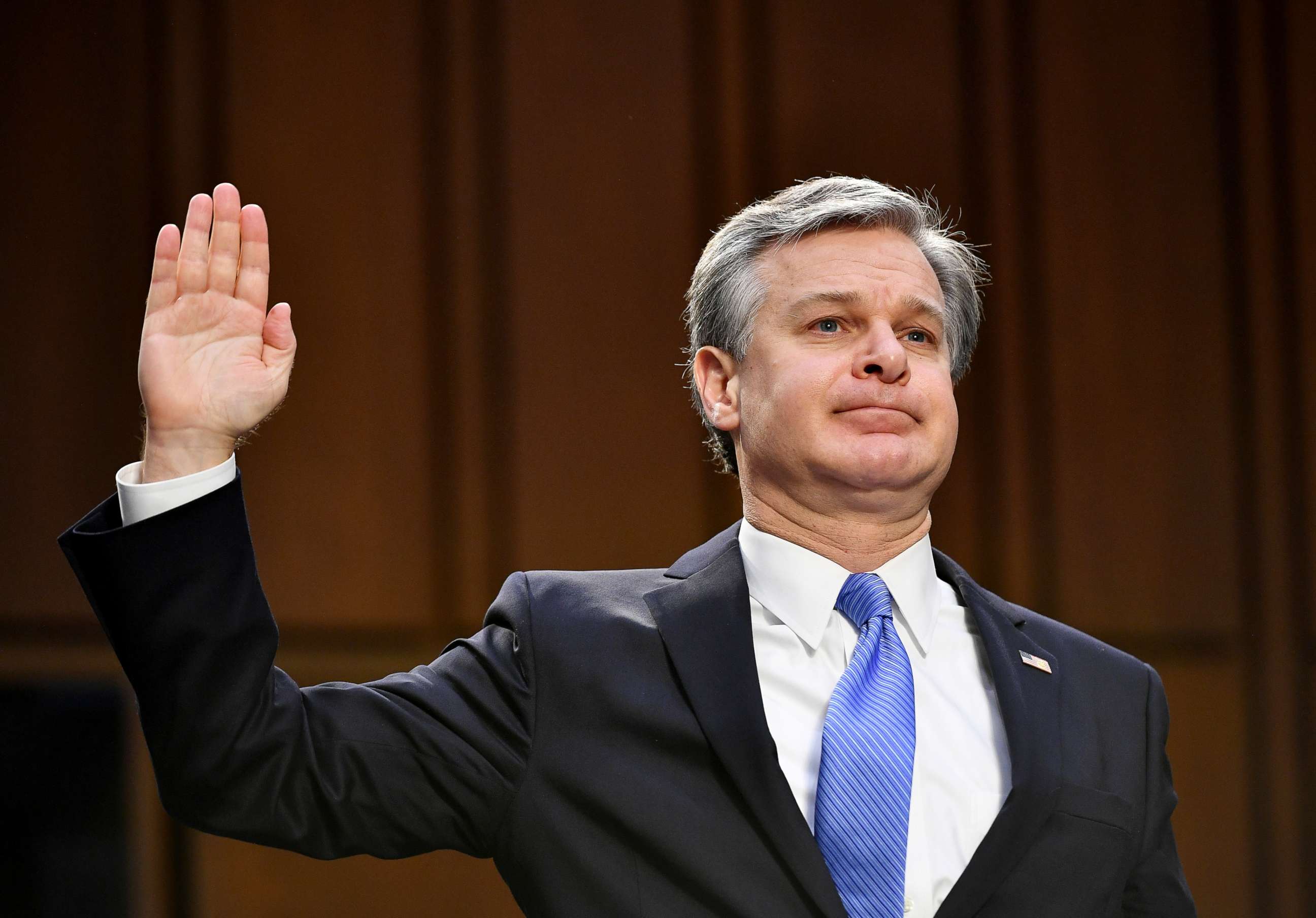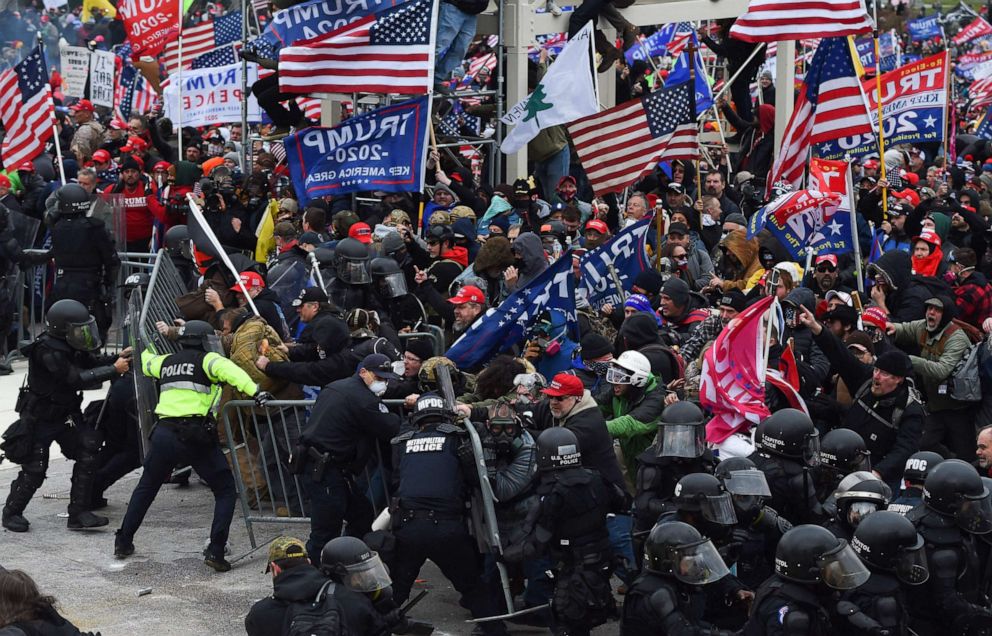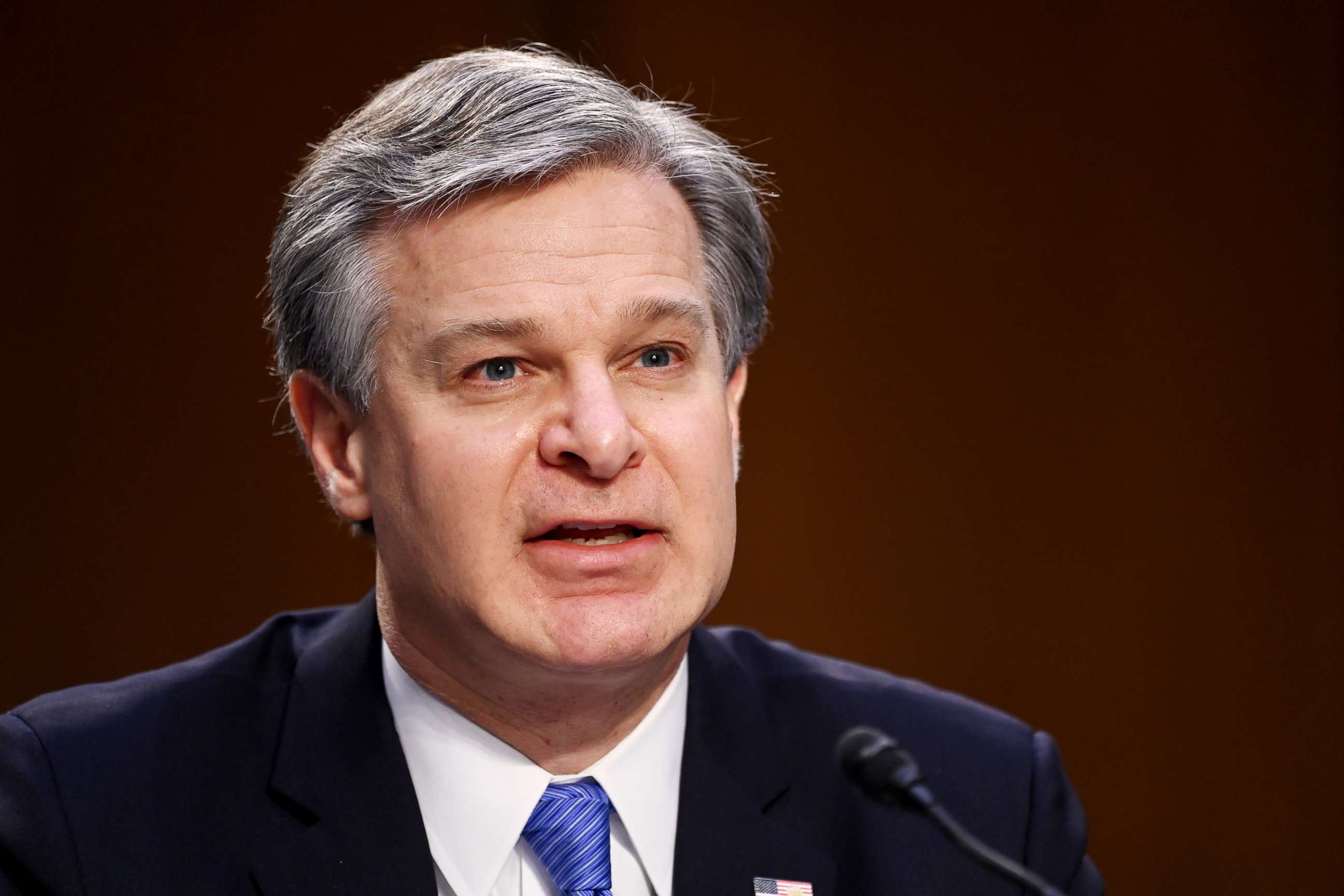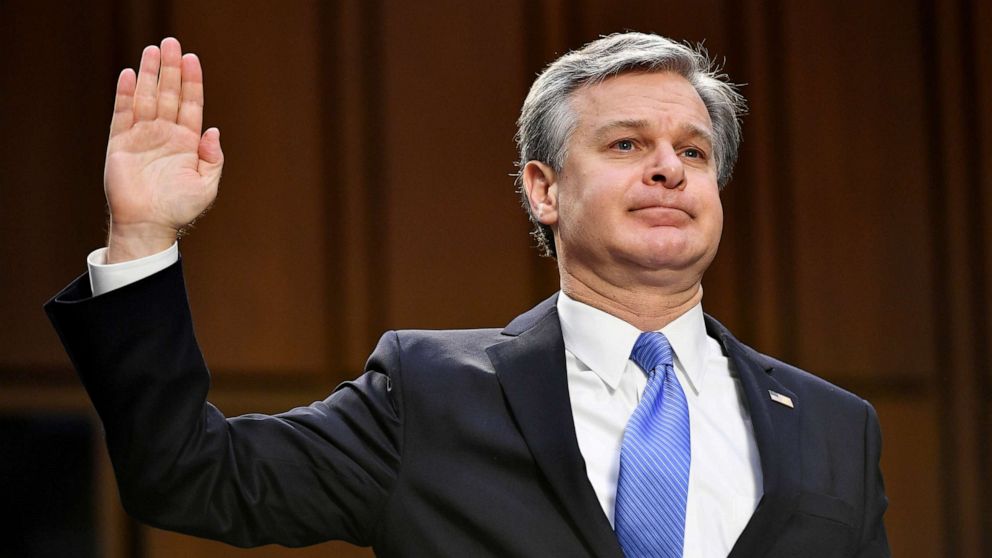FBI director says Capitol assault 'domestic terrorism,' no evidence of antifa
Testifying in front of Congress for the first time since the Jan. 6 assault on the U.S. Capitol, FBI Director Christopher Wray told lawmakers Tuesday he was "appalled" about the violent attack while defending the bureau's handling of the rising domestic terror threat in recent years.
"I was appalled that you, our country's elected leaders were victimized right here in these very halls," Wray said in his opening statement. "That attack, that siege was criminal behavior, plain and simple and his behavior that we, the FBI view as domestic terrorism. It's got no place in our democracy and tolerating it would make a mockery of our nation's rule of law."
Wray testified as the bureau faces scrutiny over whether it properly shared intelligence leading up to the assault as well as its broader role in addressing the nation's domestic terror crisis.
Wray told the Senate Judiciary Committee the bureau has arrested more than 270 suspects involved in the violent insurrection with more than 300 facing federal charges and more being identified every day. He called the American public the FBI's "greatest partner" in the investigation with more than 270,000 digital media tips sent to agents so far.
More broadly, the FBI director said that there are 2,000 domestic terrorism investigations, up from almost 1,000 when he first started in 2017.

Pressed by Judiciary Committee Chairman Dick Durbin whether the Capitol attack involved white supremacists, Wray said the majority of the people arrested could be categorized as militia extremists.
"We at the FBI don't tend to think of violent extremism in terms of right, left, that's not a spectrum that we look at. What I would say is that it is clear .... a large and growing number of the people that we have arrested so far in the connection with the 6th are what we would call militia violent extremists ... and some already who emerged that I would have been in the racially motivated extremist bucket," he explained.
The director said it is getting harder and harder to identify the motives of domestic extremists, but added that racially motivated extremist cases are "the biggest chunk of our domestic terrorism caseload overall."
"And the most lethality over the last decade has been from these same extremists. The things that drive these people, I think range. One of the things that we struggle with in particular is that more and more the ideologies, if you will, that are motivating some of these violent extremists are less and less coherent, less and less linear, less and less easy to kind of pin down," adding it could be "a little bit of this and a little bit of that" with some personal grievance added in.

He said at the moment there is no indication that any antifa members participated in the Capitol assault as some Republicans have suggested.
The FBI director said the smallest, but the most serious, group that attempted to disrupt Congress were domestic terrorists.
"The smallest group numerically, but by far and away the most serious group. are those who ... breached the Capitol grounds, who engaged in violence against law enforcement who attempted to disrupt the members of Congress in the conduct of their constitutional responsibilities and of those, some of those people, clearly came to Washington, we now know, with plans and intentions to engage in the worst kind of violence, we would consider domestic terrorism," he said.
Wray told lawmakers that the FBI has been "sounding the alarm" about the rising domestic terror threat for "a number of years now."
"Whenever we've had the chance we've tried to emphasize that this is a top concern and remained so for the FBI," Wray said. "The FBI will not tolerate agitators and extremists who plan or committed violence. Period. And that goes for violent extremists, of any stripe."
When Durbin asked Wray about the situation report from the FBI field office in Norfolk on Jan. 5 that warned of individuals plotting "war" on Jan. 6, with specific intelligence about a potential attack on the Capitol, Wray said that the intelligence was shared three different ways: with local law enforcement and Capitol Police in an email to the Joint Terrorism Task Force, then verbally communicated by the FBI's command post in the bureau's Washington field office, and was then shared through a portal accessible by law enforcement around the country.
Wray emphasized, as did former Capitol Police Chief Steven Sund at a congressional hearing last week, that the information was "raw" and "unverified" and said the information sharing process was consistent with the bureau's normal procedures. At the same time, he revealed he hadn't seen the report until after the 6th.
Sund argued his force was not properly alerted by law enforcement and intelligence agencies about specific threats to the Capitol in advance of the attack and that he personally wasn't privy to the information from the FBI Norfolk field office.
Robert Contee, acting chief of the Metropolitan Police Department, said last week that his phone is on 24/7 and is available to take any call and the fact that the FBI bulletin from Norfolk came through email after 7 p.m. is not excusable.

Wray was not able to explain when pressed multiple times by lawmakers why the Norfolk field office's situational report is so far the only specific intel known to have been shared by the FBI prior to the Jan. 6 attack and why the bureau seemingly wasn't able to pick up on the extensive chatter among groups beforehand from individuals intent on committing violence.
When Democratic Sen. Amy Klobuchar asked whether FBI could have done more in its intel sharing in advance of the Capitol attack, Wray conceded, "I do not consider what happened on Jan. 6 to be an acceptable result, and that's why we're looking so hard at figuring out how the process can be improved. ... We're gonna keep working to get better."
Wray also said that people who were on an FBI watchlist were visited by agents to check in before they were set to travel to Washington to participate in the Capitol.
"In a number of instances, we had agents in their home states or home cities approach those individuals, interview them and even if we didn't have a basis to charge somebody, it dissuaded a number of those people from traveling," he explained.
Durbin opened the hearing by playing a video with footage of the violent episodes from the Capitol assault that included multiple excerpts from an ABC News exclusive interview Chief Justice Correspondent Pierre Thomas did with Capitol Police Officer Harry Dunn.
"The hate on display that terrible day is not a new phenomenon in our country," Durbin said, after the emotional video ended with the audio of Dunn asking, "Is this America?"




